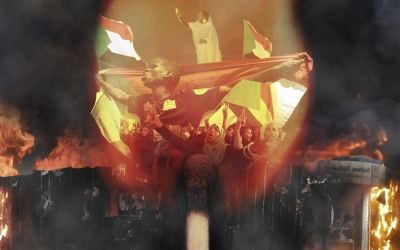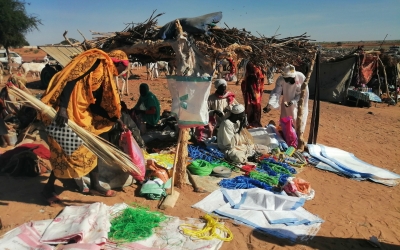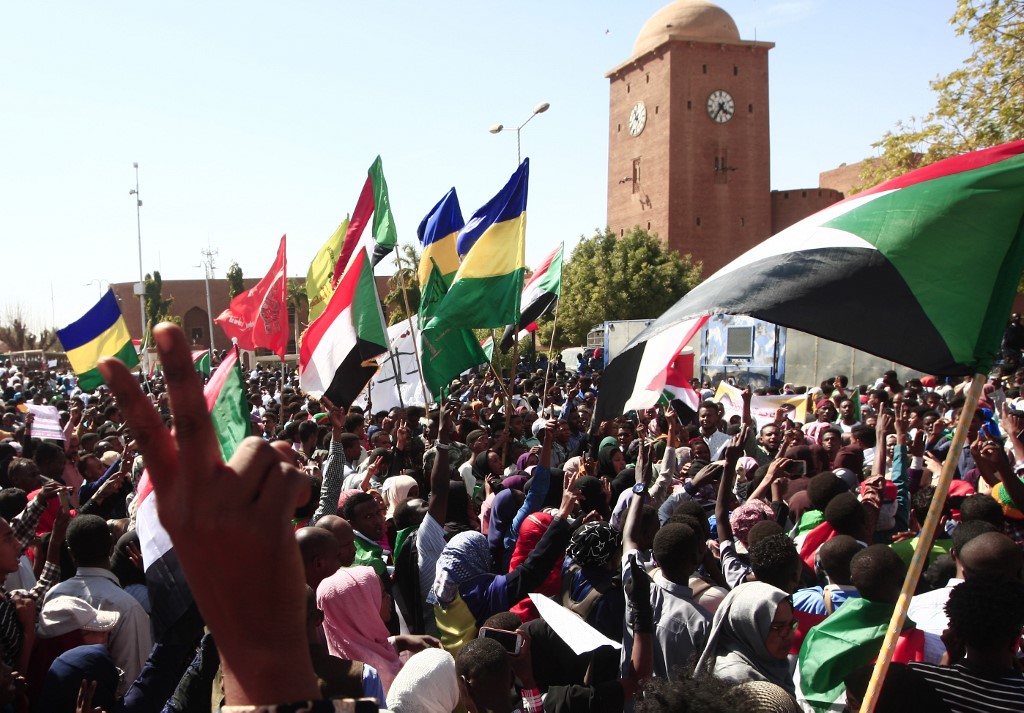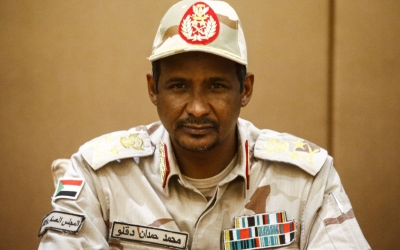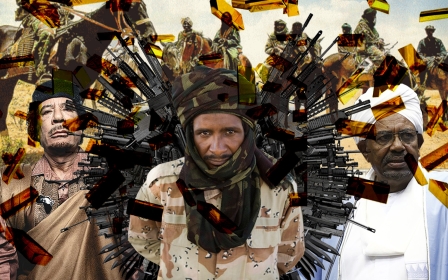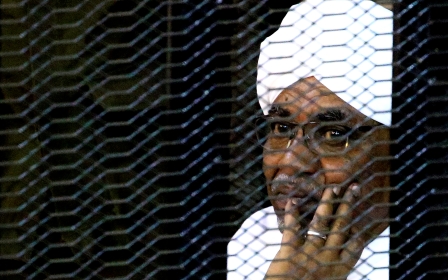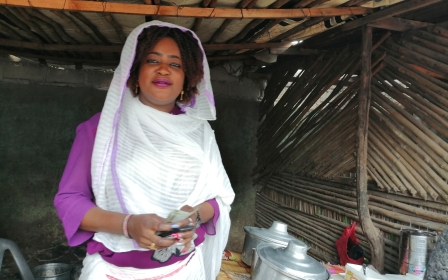‘Suspect still at large’: Why Sudan hasn’t handed Omar Bashir over to the ICC
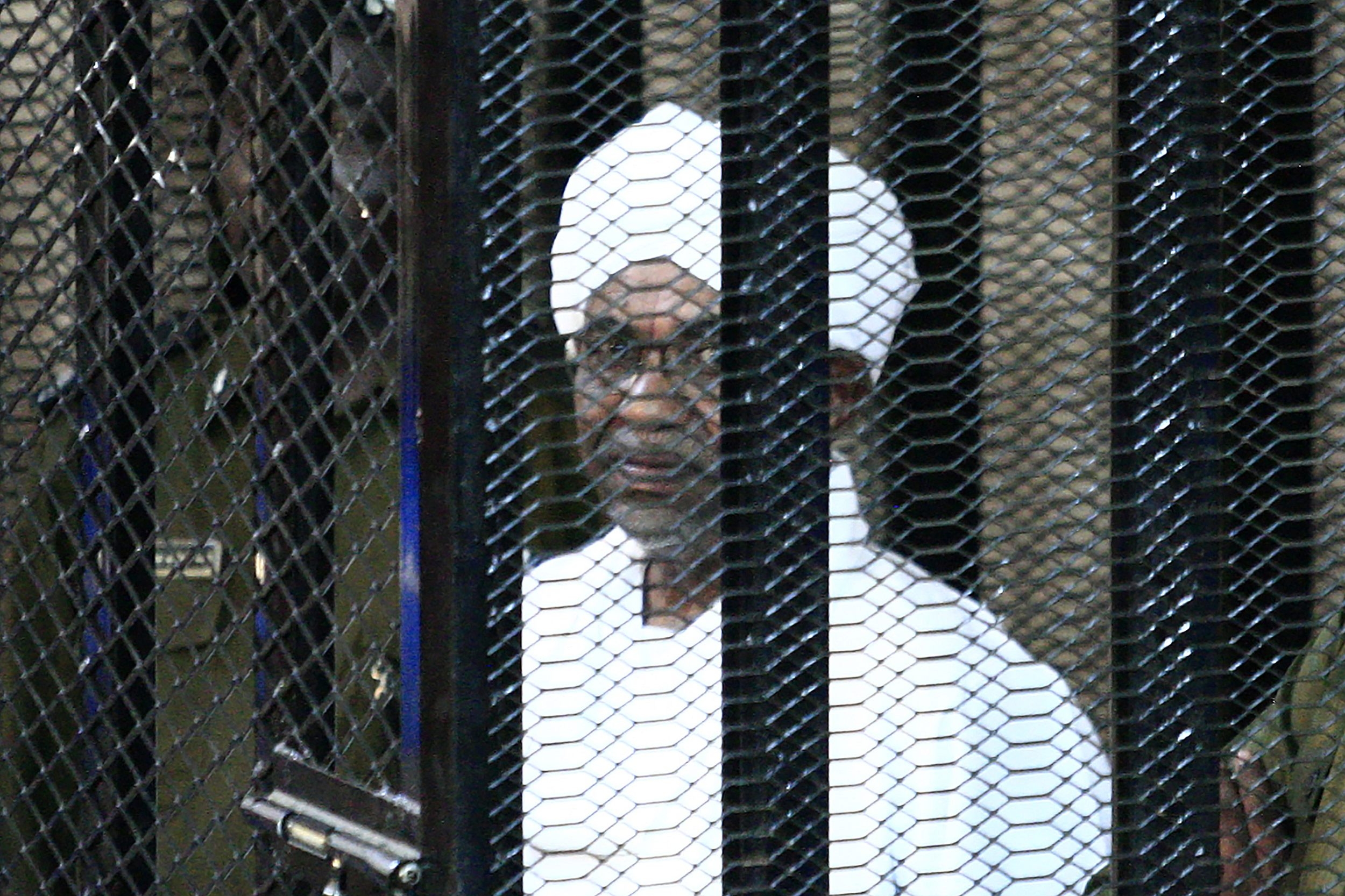
In March 2009, the International Criminal Court (ICC) first issued a warrant for then-President Omar al-Bashir, Sudan’s longtime leader, over allegations of genocide, war crimes and crimes against humanity in the Darfur region.
To this day, the court files state that “the suspect is still at large”.
But 11 years later, almost a year after he was ousted following months of protests against his rule, the issue of whether to turn Bashir over to the ICC has come to the fore in Sudan - causing legal and political controversy.
The current transitional government - composed of both civilian and military members - has reportedly been considering a variety of options in the past month.
In addition to surrendering Bashir and other wanted persons to the ICC, officials have hinted at the possibility of prosecution within the Sudanese legal system, as well as the creation of a hybrid court composed of Sudanese and ICC judges with participation from the African Union (AU).
While the leadership in Khartoum has yet to make a decision, Sudanese lawyers and human rights groups have argued that Bashir, currently imprisoned in the Sudanese capital and facing charges of illegal acquisition and use of foreign funds, must also be held accountable for other crimes committed during his rule - including the killing of protesters in 2019.
While options are being weighed, Bashir’s case has highlighted the complications of pushing for justice as elements of the deposed autocrat’s former regime remain part of the country’s leadership until today.
Government weighing options
Bashir, his former Minister of Defence Abdul Rahim Mohamed Hussein, former head of the ruling National Congress Party (NCP) Ahmed Haroun, and senior Janjaweed militia leader Ali Kushayb are all wanted by the ICC for their role in the brutal government repression in the country’s western region of Darfur since 2003.
The violent state repression in Darfur killed more than 300,000 people between 2003 and 2013, according to United Nations estimates.
If Bashir is handed over to The Hague, he would be the third African leader to appear in front of the court after former Ivory Coast president Laurent Gbagbo and current Kenyan head of state Uhuru Kenyatta. But unlike the two others, Bashir is widely expected to be found guilty, standing accused of crimes of far larger scale.
On 11 February, Sovereign Council member Mohamed Hassan Altaaishi announced that Sudan would allow Bashir and other wanted figures to “appear” in front of the court.
But three days later, the head of the transitional political authority, General Abdel Fattah al-Burhan, said that this appearance did not necessarily mean that Bashir would be handed over to the ICC.
“The word ('appearance') doesn’t mean that the wanted persons would be sent to The Hague,” Burhan said. “However we in the government are in intensive consultations to see how we will drive this forward and review the options of where the trial is supposed to be held.”
Sudanese government spokesperson and Minister of Information Faisal Mohamed Salih told Middle East Eye that Khartoum was committed to working with the ICC.
“We have fully committed to cooperating with the ICC and we so far confirm that we are committed to let all wanted persons appear in court - but the exact location where the trial will take place is still something that we are discussing between us in the transitional government and with the ICC,” Salih stated.
However, the ICC told MEE that it had not had any contact with Sudanese authorities regarding the fate of Bashir and his fellow accused.
“We are aware of media coverage reporting that the Sudanese authorities have agreed to hand over the former president, Mr Omar al-Bashir, to the custody of the International Criminal Court. These media reports have not been confirmed to the court,” ICC spokesperson Fadi El Abdallah stressed.
A hybrid court or full-on reform?
UN Security Council Resolutions 1593 and 1970 form the foundation of ICC’s investigation into the crimes committed in Darfur. The two resolutions highlight the Sudanese state’s responsibility, as well as that of the AU, to cooperate with the legal process launched against Bashir.
As a result, Sudanese legal experts believe that, in addition to being responsible for protecting its own civilian population, Sudan bears the duty to bring all those accused of violating international law to justice by whatever means it can.
'One of the justifications for ICC jurisdiction over Sudan is that the local system is incapable of trying these grave crimes'
- Moniem Adam, Sudanese legal scholar
For Sudanese legal scholar Moniem Adam, the Sudanese legal system is ill-equipped to handle Bashir’s cases on its own.
“The complementarity principle states that the domestic (legal) system should try any crimes first,” Adam told MEE.
“One of the justifications for ICC jurisdiction over Sudan is that the local system is incapable of trying these grave crimes. There is no (Sudanese) alternative to the Rome Statute currently as a mechanism to try crimes under international law.”
However, Adam told MEE he did not see the ICC avenue as the most effective avenue to push for internal legal changes in the wake of Sudan’s 2019 uprising.
“I strongly believe that the ICC is not the best mechanism for the situation in Sudan, especially now,” he argued. “The procedures need to take into account the political situation in Sudan too.
“I believe a hybrid court could be better to try the cases - there would be a great impact on the political level and in terms of transitional justice too,” Adam added.
Sudanese legal expert Ali Agab said he believed Bashir and other defendants needed to be prosecuted inside Sudan - but only after radical reformation of the country’s legal system.
'We don’t want their trial to be a one-time occurrence; We want it to be part of the Sudanese judicial legacy'
- Ali Agab, Sudanese legal expert
“Trying these grave crimes under the ICC will not contribute to political changes and will not help enhance the local judicial system,” he told MEE.
Agab argued that a trial held inside Sudan would hold different weight that one carried out abroad, marking a new era for the country.
“When the trial happens in front of their eyes, this will convince victims, as well as provide more protection and credibility to witnesses and their testimonies,” he insisted, arguing that providing security and ease of movement for witnesses would be easier within the country.
“We don’t want their trial to be a one-time occurrence; We want it to be part of the Sudanese judicial legacy so that it can contribute in stopping crimes, reforming the system and preventing impunity,” he emphasised.
However, Adam said laws that could effectively prosecute war crimes are currently nonexistent in Sudan - and questioned whether it would be possible for any reforms to be applied retroactively.
“Any legal reform that might occur will have no legal effect on the situation (to prosecute crimes within Sudan)...because at the time international law violations were not part of the Sudanese criminal code,” he argued.
Adam went on to add that any hasty national legal reform carried out purely to avoid external intervention in Sudanese affairs would be insufficient.
“Capability is defined according to international law as having a sufficient and solid system to try these grave crimes, but what is happening from Sudanese authorities at this time is, in a way, to support impunity by blocking ICC jurisdiction,” he underscored.
The militia leaders that remain
A significant obstacle standing in the way of legal accountability, Adam notes, is the role of Sudanese military and militia elements, which once belonged to Bashir’s state apparatus, in the country’s current leadership - some of whom stand accused of involvement in crimes in Darfur.
Mohamed Dagolo - also known as Hemeti - is the most prominent example. Hemeti heads the Rapid Support Forces (RSF), a paramilitary group composed of multiple Janjaweed militia groups accused of crimes against humanity in Darfur and deadly suppression of the 2019 uprising.
He now serves as deputy head of the Sovereign Council.
Some militia and army leaders, Adam believes, fear the ICC has another unpublicised list of people suspected of involvement in crimes in Sudan.
“All of them are expecting to be on it. They are trying to push the topic off the table by just surrendering Bashir, and problem solved,” he said, implying Sudanese leadership may need guarantees before deciding to hand over Bashir.
Adam pointed out that the mistrust between civilian and military and paramilitary actors in the transitional government was a definite factor obstructing legal action against Bashir.
“There is a great mistrust between members of the transitional sovereign council in Sudan based on the understanding of justice and peace where (analysts’) main concern here is justice,” the scholar added.
“The military that is now sharing power with civilians feel threatened when the word ‘justice' is mentioned, because they were part of the regime when the grave crimes were committed in Darfur and other parts of Sudan,” Adam said.
He also cast doubts over whether international actors would push for the ICC to move forward against Bashir while Sudan remains in a fragile state of political transition.
“I expect that the international community who supported the ICC strongly in the past will not support it now, because in their view stability comes before justice.”
Middle East Eye delivers independent and unrivalled coverage and analysis of the Middle East, North Africa and beyond. To learn more about republishing this content and the associated fees, please fill out this form. More about MEE can be found here.


